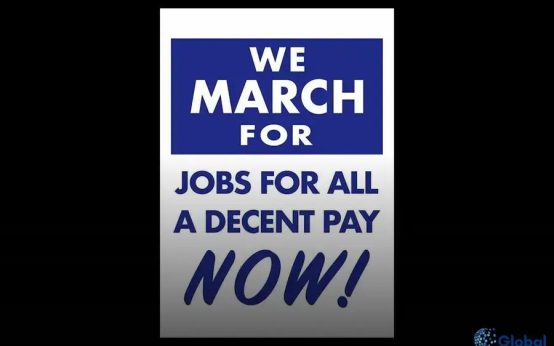When switching careers, it’s essential to present your skills and experiences effectively on your resume. This guide provides crucial resume tips for career changers to help you stand out in your new field. Start by identifying transferable skills and craft a compelling career summary. Consider how formatting can increase your resume’s impact and customize your content for different industries.
Identifying Transferable Skills
Transferable skills are abilities and expertise that can be applied across various roles and industries. Recognizing these skills is crucial for career changers looking to transform their resumes effectively. These skills include competencies like leadership, communication, problem-solving, and project management.
- Leadership: This involves guiding teams, making strategic decisions, and driving projects to completion. These skills are highly valuable in any field.
- Communication: Effective communication is essential in every job as it enhances collaboration and boosts productivity. Being able to articulate ideas clearly is a universal requirement.
- Problem-solving: Employers always seek individuals who can tackle challenges and find innovative solutions, making this skill highly adaptable across roles.
- Project management: Handling projects from start to finish with efficiency and organization is a skill that applies to various job functions.
Highlighting these skills on your resume can demonstrate versatility and attract potential employers. Focus on specific examples from your past experiences where you’ve successfully utilized these skills. This concrete evidence supports your adaptability and readiness to transition into new career paths.
Crafting a Compelling Career Summary
When you’re shifting careers, your career summary becomes a pivotal part of your resume. It’s your elevator pitch, showcasing your professional journey and highlighting why you are the perfect fit for the new role. Follow these steps to craft a compelling career summary that stands out.
Focus on the Future: Begin by highlighting your aspirations and what you aim to achieve in your new career. This shows employers that you are forward-thinking and ready to bring new perspectives to their company.
Capitalize on Achievements: Use specific achievements from your past roles that are relevant to the new industry. Quantifiable results, like increased sales or successful projects, make a strong case for your ability to excel in a new role.
Showcase Transferable Skills: Emphasize abilities acquired in previous jobs that are crucial for the new position. Skills such as leadership, problem-solving, and communication are highly valued across all fields.
Be Concise and Clear: Your career summary should be brief and to the point, ideally no more than 3-4 sentences. Use clear language and avoid jargon that might be unfamiliar to someone outside your previous field.
Formatting Your Resume for Impact
When transitioning to a new career, it’s crucial to format your resume for maximum impact. Begin by ensuring clarity and simplicity in your format. Use a clean layout with clear headings, bullet points, and consistent spacing. This makes your resume easy to read and scan quickly by hiring managers. Prioritize the use of white space to avoid overwhelming the reader.
Highlight key achievements from your previous roles. Executive summaries and bullet points make accomplishments stand out. Boldface important job titles or skills that align with the new career path. Clearly separate different sections like experience, education, and skills so each element of your resume is easy to navigate.
Use action-oriented language. Begin each bullet point or description with strong action verbs and focus on outcomes rather than duties. For instance, instead of saying ‘Responsible for managing projects,’ write ‘Directed and completed major projects, improving efficiency by 20%.’ This technique makes contributions tangible and impactful.
Strategically place elements of your resume to guide the reader’s eye. For example, place important information like name and contact details at the top. Follow this with a compelling career summary or objective that succinctly states your career change goals and aligns with your intended career path.
Leverage technology by incorporating appropriate keywords throughout your resume for resume-scanning software. Identify industry-specific terms and weave these naturally into your experience descriptions and skills sections.
Finally, regularly update fonts, styles, and formats to current standards. Using contemporary design elements can signal tech-savviness and attention to detail. Emphasizing the structure and presentation of your resume can make a significant difference in how your qualifications are perceived during a job application.
Customizing for Different Industries
To succeed as a career changer, it’s crucial to tailor your resume to the specific industry you’re aspiring to enter. Different industries value different skills and experiences, so exhibiting a tailored approach can make a significant impact.
Start by researching the career trends and expectations within the new industry. Look at job descriptions and identify keywords or required skills that are repeatedly mentioned. Use these insights to align your resume content.
Highlight Relevant Experience
Map out previous accomplishments that can translate into value for the new industry. For instance, a sales manager transitioning to IT could emphasize their experience in team management, strategic planning, and achieving measurable goals, as these are relevant across multiple industries.
Adjusting Technical Skills
Industries like tech or finance might place greater emphasis on technical skills. In such cases, consider any technical proficiencies or software experience you’ve acquired, even if initially peripheral. These should be spotlighted in your resume.
In industries like education or healthcare, soft skills such as communication and empathy are paramount. Highlight these skills through specific examples, such as how you led team meetings to foster collaboration, thereby illustrating your capacity for teamwork and leadership.
Utilize Industry Jargon
When targeting a specific industry, infusing your resume with relevant jargon can demonstrate your familiarity with the field. However, balance is key; ensure that your resume remains intelligible to hiring managers who may not be deeply technical.
Adapt existing experiences and frame them in a way that is attractive to employers in the desired field. This shows a proactive approach and a genuine interest in integrating into the new professional environment.




